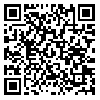Wed, Feb 18, 2026
[Archive]
Volume 4, Issue 7 (2012)
J Med Edu Dev 2012, 4(7): 61-67 |
Back to browse issues page
Download citation:
BibTeX | RIS | EndNote | Medlars | ProCite | Reference Manager | RefWorks
Send citation to:



BibTeX | RIS | EndNote | Medlars | ProCite | Reference Manager | RefWorks
Send citation to:
Madarshahian F, Hassanabadi M, Khazaei S. Impact of evidence based care on nursing included in teaching plan on the students practice . J Med Edu Dev 2012; 4 (7) :61-67
URL: http://edujournal.zums.ac.ir/article-1-55-en.html
URL: http://edujournal.zums.ac.ir/article-1-55-en.html
1- Birjand University of Medical Sciences , f_madarshahian@yahoo.com
2- Birjand University of Medical Sciences
3- Ministry of Health and Medical Education
2- Birjand University of Medical Sciences
3- Ministry of Health and Medical Education
Abstract: (39692 Views)
Avstract
Background and Objective: To adopt an evidence-based approach to education and decision-making, there is a need to determine its uses and barriers. In this study the impact of evidence-based care on nursing students practice was investigated.
Material and Methods: In this quasi-experimental study, forty nursing students in urology ward were selected by purposive sampling and were assigned randomly to evidence based education (n=20) and traditional teaching (n=20) groups. Data was gathered by student's opinions and patient satisfaction questionnaires, and psychomotor checklists and analyzed using descriptive and inferential statistics.
Results: Optimum patient care in evidence -based and traditional groups were 35% and 29% respectively. 65% of students in evidence- based and 40% in traditional group believed that their decisions for care were according to patients' needs. 73% and 38% of them considered patient problems and reduced their anxiety by 64% and 45% (p=0.045) respectively. 52% and 40% patients in the two groups were highly satisfied. There was no significant differences (p=0.63) between the patients care knowledge in evidence- based and traditional groups initially.
Conclusion: Results showed that evidence-based nursing care was more effective than the traditional approach.
Article Type : Orginal Research |
Subject:
Education
Received: 2011/08/30 | Accepted: 2011/12/11 | Published: 2012/02/15
Received: 2011/08/30 | Accepted: 2011/12/11 | Published: 2012/02/15
Send email to the article author
| Rights and permissions | |
 |
This work is licensed under a Creative Commons Attribution-NonCommercial 4.0 International License. |



